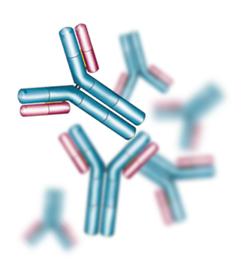Previous murine studies have shown that mice with a chronic Toxoplasma gondii infection are able to survive lethal co-infections with unrelated pathogens, such as Listeria monocytogenes. However a mechanistic analysis of why this occurs was not performed and is therefore unknown. This study further analyzed these findings and shows that this enhanced survival against L. monocytogenes is due to early reduction of bacterial burdens and elicitation of Ly6C+ inflammatory monocytes. Known to be essential in host defense against T.gondii, as evidenced by impaired inflammatory monocyte emigration during T.gondii infections resulting in severe inflammation and failure to control parasite replication. Thus using a co-infection model to explain why T. gondii-infected mice are more resistant to the bacterium Listeria monocytogenes the study was able to show that stimulation of the rodent specific Toll-like receptor TLR11 by the T. gondii ligand, profilin, can recruit inflammatory monocytes, and that these monocytes can protect the host against L. monocytogenes. Making profilin an important tool for the study of monocyte biology and its immunological benefit against an unrelated pathogen.












